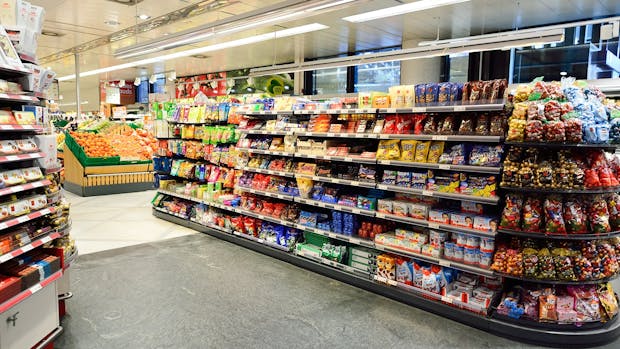time to leave FMCG on the shelf?

inflation and multiple price hikes in recent times leave little room to manoeuvre
on February 28, even as the benchmark indices showed faint signs of recovering from their recent slump, two heavyweights from one category were hitting their 52-week lows. FMCG firms Hindustan Unilever (HUL) and Brittania were down 2% and 3% at Rs 2,120/share and Rs 3,330/share respectively, in intraday trading.
what’s causing this slump?
slow boil
although it has become more noticeable of late, the downward trend in FMCG stocks isn’t recent at all. in fact, over the last six months, HUL and Brittania have heavily underperformed the benchmark index by registering ~20% and ~15% declines, respectively, against a ~1% decline. it isn’t limited to just those two companies either, with Dabur India, Nestle India, Jyothy Laboratories, and Godrej Consumer Products down between 13% and 29% over the same period.
the reason behind it is inflation and a supply chain crunch causing the prices of raw materials to skyrocket, in many cases to record highs. as the cost of raw materials increases, cost of production goes up and reduces profit margins. meanwhile, inflation also pinches consumers’ pockets, leading to a decrease in consumption. this was witnessed in the October-December quarter (Q3FY22). HUL, Dabur and Marico reported a slowdown in volume growth to 0-2% whereas Nestle, Tata Consumer, and Jyothy Laboratories saw mid-single digit volume growth.
squeezed out
one solution here is to pass on that increase in costs to customers, which the companies gratuitously did last year while inflation was yet to become apparent to the end-consumer. but with inflation taking center stage, global markets in a downturn, and the conflict in Ukraine threatening to start a domino effect that hits already fragile supply chains, they may have no choice but to absorb the rising costs themselves now.
they may have to resort instead to other measures such as reducing optional costs - advertising, for example. fewer ads potentially mean they lose out on some business in turn, but that is a tradeoff they may have no choice but to make.



